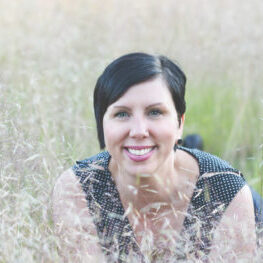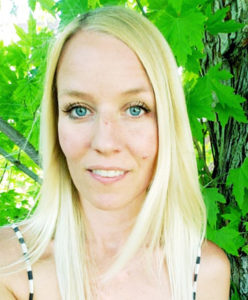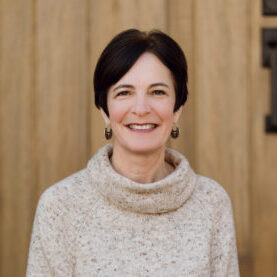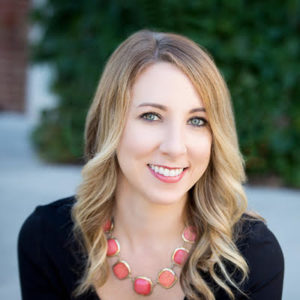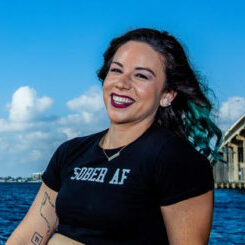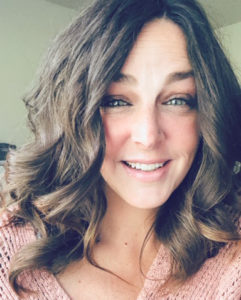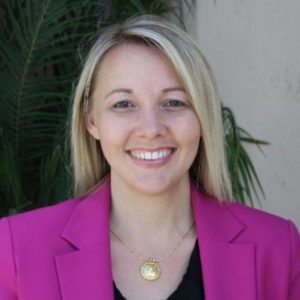Biz Prep Prompts: How to set-up your business for the new year
Recently wrapped up the Biz Prep Bootcamp and thought I would share the prompts with you. These prompts will help you set yourself up for success so that you step into your business having thought through the basics while putting your professional foot forward.
👩💻
1. Testimonials, success stories, case studies
Keep a folder of your best testimonials or success stories. Be sure to ask your Client if you can use their words in your sales copy. I just got this one last week..."I see now how so much of the resistance I experienced over the years had been tied to my fear of failure as a coach. Beverly Sartain has been so instrumental in helping me to embrace my fear of failure as a growth opportunity and re-visualize my expectations and goals."
2. Quotes you like or quotes you’ve created yourself
Use Canva to create 25 quotes that are in alignment with your niche. This could be your own quotes or could be quotes that you like. Make sure they are applicable to your offers. Bonus tip: Add a quote to a call-to-action to receive even more traction and shares via social media.
3. 10 people for whom you could guest blog
Make a list of at least 10 people for whom you could guest blog. Leveraging other people's communities is key while building your own.
4. 5 themes you could speak on for podcast invites
Make note of 5 topics you could talk about for podcasts or write about for guest blogs. Make sure these themes are aligned with the problem you help people solve. This is your opportunity to grow your authority around your niche.
5. Write or revise your bio
Make sure you have quick access to a bio that can be provided when engaging collaboration or partnerships. Make sure that your bio is to the point and addresses the people you serve and the problem you help solve. Accolades can help credibility but bottomline, people want to know that you can help them solve their specific problem.
6. 10 stories about yourself that you can share on social media
What are 10 unique stories about yourself? This is where you get to be playful and fun so that you become relatable to your Soul Clients. I grew up speaking another language as both my parents were immigrants. I've never had my ears pierced. And in my twenties I backpacked through South America, Australia and Southeast Asia.
7. 10 strengths or things you have overcome in your life
Share what you are good at. You aren't being conceited; you are letting people know your strengths. Our strengths can support other people. Are you introverted? Is there a particular skill you were good at as a child? What fear did you overcome and how?
8. List out 10 raving fans
Who are 10 people that support you to the max? Share your appreciation with these people. Acknowledge the people who are supporting you and see how you might be able to support them.
9. 24 questions you could ask your tribe
One of my favorite ways to get engagement online is asking questions to my community. I recently got 128 comments on question I posted. Ask questions that are relevant to your niche, offerings and community. I like to position my community members as the expert of their own lives and recovery (which they are). Check out how I ask questions on my Recovery Life Management business page. https://www.facebook.com/BevSartain/
10. 24 tips you can share with your tribe
What are 24 tips you can share with your tribe to position yourself as an authority in your niche? Distinguish yourself here. Provide value that other people in your industry are not providing. When you help your Soul Client solve a problem, they will keep coming back to you for support.
11. What do you stand for?
Stand for something. Be bold. Be visible with what you stand for. People won't know unless you tell them. I stand for self-actualization through a healing or recovery process. I want to see more and more beautiful souls overcome their life's challenges and lift other people up as well. I stand for being a demonstration of love, grace and compassion in my life for myself and for others. Tell people who you are and watch your Essence attract your Soul Clients.
12. Review your social media pages and update
What social media platforms will you use? I just suspended my Instagram account so that I can focus on Facebook and LinkedIn. I also limited my FB engagement so my main social media platform this year will be LinkedIn. I'm doing this because LinkedIn makes the most sense for my Ideal Client. You have permission to focus your attention where it's best used. No need to be on all the platforms. Focus and get good on 1 or 2.
13. Update your website copy/services
The main pages on a website should be the Home, About and Services page. The Home page should lead to the About page should lead to the Services page. Make sure you are capturing emails off of your website so you can start to grow a list of raving fans who want to hear from you.
14. Revise your email signature with a freebie
Make sure you have an email signature and up your game by putting a call-to-action on your signature. This could be a call with you, an opt-in to your freebie or a reply to this message call-to-action. Always invite people to take a next step with you.
15. Voicemail Invite
Use your personal voicemail to tell people about your work. I recently had my banker say, "Cool voicemail. I enjoyed listening to that." Now he knows exactly what I do and who I serve so he can refer to me if someone comes to mind. Always be promoting your services. If you don't, who will?! You never know who knows someone who may need your services right now.
16. Message 10 people whose work you admire and give them props
Reach out to mentors, influencers and people you enjoy. A few years back, I reached out to Gabby Bernstein and she messaged me back. Let people know you enjoy them and their work. It's an energy thang! Build energetic momentum by lifting other people up.
17. Clear out your space: work space, emails, binders, materials
Another one of my favorites that I do monthly. Declutter your space. Delete old emails you don't need to keep. Organize binders and materials for your coaching sessions. Clear out your work space so that you make room for more of what you truly want. Get yourself organized so that you can keep your energy clear and serve to the best of your ability.
18. Delete yourself from groups that aren’t fully aligned with your work or unsubscribe
Unsubscribe from emails and groups that are no longer a current fit. I do this all the time and find it super liberating. I only keep things in my world that continue to support my up-level and next steps in life and business. I follow very few people but fully engage with the people I follow at the time.
19. Create a list of calls to action
Write down a list of at least 10 calls-to-action so that you have these ready to share via posts, video or lives you do. Calls-to-action could be around joining your list, hopping on a call or joining your free FB group. Here's my free FB group as an example:
https://www.facebook.com/groups/holisticcoachnetwork
20. 10 things that uniquely qualify you to talk to people about the topic you coach on
This is where you get to share your unique qualifications with people. One that I love to share is that I studied Spiritual Psychology. I share how my healing and recovery process happened through Spiritual Psychology. This positions me with a unique perspective and pulls people to me that are interested in alternative paths to recovery.
👩💼
Put these 20 prompts into practice and find yourself feeling more confident and competent about your coaching business.
And if you'd like to strategize next steps with me, hop on a free connection call to see how we might work together: https://holisticcoachtraininginstitute.as.me/connectioncall
I've got some great coach and business development programs I'm offering this year. I'd love to tell you more and see if any of them are a fit.
Success Stories in Recovery: Katherine Salamanca
TAME YOUR INNER CRITIC

 Vanessa Klugman is a retired physician, ACC certified coach, She Recovers designated coach and founder of Resilience Recovery Coaching. She is a certified recovery coach through Crossroad Recovery Coaching and am accredited through the International Coaching Federation. I hold a BA from the University of Chicago and MD from the University of Illinois at Chicago. I competed my fellowship in endocrinology at the University of Chicago. I practiced endocrinology in private practice for 22 years.
Vanessa Klugman is a retired physician, ACC certified coach, She Recovers designated coach and founder of Resilience Recovery Coaching. She is a certified recovery coach through Crossroad Recovery Coaching and am accredited through the International Coaching Federation. I hold a BA from the University of Chicago and MD from the University of Illinois at Chicago. I competed my fellowship in endocrinology at the University of Chicago. I practiced endocrinology in private practice for 22 years.
"It’s not what you say out of your mouth that determines your life, it's what you whisper to yourself that has the most power." - Robert T. Kiyosaki
We all have an inner critic. For some of us, the messages of the inner critic are so harsh that it causes tremendous pain and prevents us from moving forward in our lives. The critic’s messages usually originate in childhood when we developed strategies to fulfill our emotional needs, including feeling worthy of love from others and from ourselves. The underlying goal of the critic is to protect us from feelings of harm that arise during times of vulnerability and oversensitive reactions to life situations. The way the inner critic provides us this protection is destructive and punitive. The critic is usually protecting us from failure or rejection. To avoid failure, the critic pushes us to achieve and excel so that we do not fail. Achievement becomes equated with worth. The inner critic pushes us to act as pleasers, behaving in a manner which avoids setting boundaries with others so that we are not rejected. Caregiving becomes equated with worth.
The underlying message of the inner critic is that we are not good enough and need to be “doing” something in order to improve. It makes absolute statements that sound like the truth. They include, ‘You are a failure, a loser, too fat or too thin, too lazy or too much.” According to Hal and Sidra Stone, “The critic must have us always in control, doing things right, feeling right, eating right, learning right, mothering right. Then maybe we can be safe.” The more we believe the messages of the critic, the more eroded our sense of self esteem becomes and the less connected we are to our innate worthiness.
By the time we are adults, the critic is no longer useful. It is up to us to develop awareness of our critic and its voice. The more we continue to listen to it’s message, the stronger it is integrated into our neural pathways. Neurons that fire together wire together. We need to start to understand the fears and motivations of our critic. As we get to know our critic, we can start to see it’s painful messages and we can do inner work to relieve our critic of it’s extreme role. The more we are subject to the critic’s judgments, the more power it gets.
Change always begins with awareness. We start by noticing the voice and its messages. One way of doing this is to begin journaling the internal negative messages you tell yourself. Pay attention to the tone of the voice, and imagine what the critic looks like. As you do this, the critic’s messages will become clearer and more easily recognizable. You increase your awareness of these thoughts the next time they arise. This allows you to then work with these thoughts from the perspective of your inner wise self.
I work with my clients to help them gain freedom from the inner critic. This gives them the opportunity to make decisions from a place of balance and wisdom rather than from fear and reactivity.
Please message me at vanessalifeandrecoverycoach@gmail.com for a free discovery call.
What is compassion in recovery?
Compassion in Recovery: Perspectives to Keep in Mind
The dictionary defines compassion as the “sympathetic pity and concern for the sufferings or misfortunes of others.” In recovery, it is the extension of that same empathy and concern towards oneself, which means treating oneself with the same level of kindness and respect that one would show others in their time of need. As individuals come out of their drug and alcohol addiction and realize the full impact of their past mistakes, it’s tempting for them to feel guilt and shame for the harm they have caused others while they were addicted. Compassion in recovery, a vital skill that people learn in dual diagnosis treatment, helps promote healing by removing obstacles of shame and guilt that often cripple an individual’s progress to full recovery.
Where does self-compassion come from if you’ve never had it in the first place?
Many who enter the dark world of drug and alcohol addiction already experience feelings of low self-esteem, depression, and hopelessness. The concept of self-compassion is far from everyone’s mind as they try to drown their sorrows in short-lived highs that will help them escape their misery, if only for a moment. Suffice it to say that learning how to have compassion in recovery is essential for everyone who seeks addiction treatment, and this is usually achieved by practicing mindfulness, a holistic therapeutic technique utilized in dual diagnosis treatment. Mindful meditation is an evidence-based practice that has been proven effective in helping individuals with substance use disorders reduce negative thought patterns while increasing the capacity for selfcare and self-compassion.
Perspectives to keep in mind during recovery from addiction
Hindsight is 20/20, so forgive yourself for what you didn’t know. Most people don’t fully realize the impact of their decisions, especially during various stages of addiction, until it’s too late. The intoxication of addiction clouds your ability to make good decisions or understand the long-range consequences of poor decisions, and the longer you’ve been addicted, the harder it is to face those consequences after the fog has been cleared. Now, thanks to healing and recovery, you can use what you know now to rebuild a better future. Your resilience will be an inspiration to many others who are still in the quagmire of substance use.
Let your recovery be the point of no return. You have worked this hard to reach a successful point in your recovery. Your humble beginnings before addiction treatment – how you became addicted, how long you struggled to get out of it, and the endless hours of work you put into recovery – will serve as a reminder not to relapse but to motivate you towards pulling others out of their addiction. Don’t forget how far you have come, because your success and survival depend on it.
Accept that you are human and you make mistakes. The mistakes you made back then did not make you a “worse” human being today. The fact that you have sought or have accepted treatment for drug and alcohol addiction means that you have taken the right course of action to rectify your situation. You are moving forward, not backward. Don’t let others constantly drag you down in guilt and shame, holding something against you that you can’t take back. Rather, accept that you made them and that you intend to make amends to everyone whom you’ve hurt. Moving forward, you have learned the skills of reconciliation that you didn’t have prior to treatment. This means you are better equipped today at handling conflict or stress than you were before addiction. Give yourself props for that and know that you will keep growing as long as you stay on the course of recovery.
Vulnerability breeds vulnerability. Addiction is the opposite of connection, and vulnerability is the antithesis of alienation. Allow yourself to be open and transparent with others about your own journey from addiction to recovery. Oftentimes, vulnerability will open up opportunities for others to have compassion on you as you are still learning how to nourish your own spirit. Moreover, you never know whom you are helping when you are real with your weaknesses. Vulnerability enables people to have compassion on themselves and deepens interpersonal relationships. It provides opportunities for mutual trust and edification.
Leave judgment at the door. Set boundaries for yourself. Is there anyone who tends to make judgmental comments? If you feel that this person will be more detrimental than favorable to your well-being, create distance through communication and time. Communicate what is hurting you and don’t allow them to talk negatively toward you in a condescending manner. If they don’t adjust, then limit how much time you will spend with this person until they agree to change their behavior. Don’t forget your own judgmental voice; as the saying goes, we are our own worst critics. When you hear negative self-talk in your mind at any point during the day or night, silence the negativity by putting into practice what you learned in mindful meditation.
About the Author
DR. RUTA STERNBERGS, Ed. D,. Psy. D., CADC-II
Dr. Sternbergs is one of New Method Wellness’s longest serving therapist. She started her
career as a registered nurse (RN), which lead to her interest in the psychological needs of
individuals. She received her doctorate in Counseling Psychology from Boston University, where she was asked to co-evaluate their inaugural Master’s Program Specializing in Counseling
Women. Ruta also completed the requirements for her Doctor of Psychology degree (Psy.D.)
from the American Behavioral Studies Institute. For the past several years, she has been an
active member of the Trauma Intervention Program (TIP) of Orange County. She has discovered
that her true calling is in the field of addiction recovery. “I cannot think of any other disease
that has such a profound impact on so many.” She considers it to be an honor to connect and
work with clients as they embark on their personal recovery journey. Ruta enjoys her family,
friends and all creatures, big or small.
7 Women Recovery Coaches On The Rise
In no particular order, here are 7 Recovery Coaches to put in your back pocket as a resource, connection or personal coach that you can share with others. Each person has a particular niche that they are working within. Everyone featured is a trained recovery coach with personal and professional experience. Help us get the word out about Recovery Coaching by sharing with your support system.
Who you are?
My name is Linda Parmar and I am a Certified Money Coach, Professional Recovery Coach and a She Recovers Coach.
Who you serve?
I serve women who are in recovery and I help support them with their financial recovery.
How you serve?
I do both one on one coaching sessions and group coaching sessions. Most recently I have teamed up with She Recovers to offer a course through their She Recovers Life program and it’s called Financial Balance.
My coaching process involves focusing on our behaviors with money. I believe that our feelings and patterns with money lead us to where we are in our journey. There is a lot of shame, resentment, embarrassment and so many other feelings involved in your money story. In my coaching we start at the beginning and understand why we feel the way we do about money and from here we build on identifying behaviors you want to change and how to change them and our action plan is built from there. I do focus on the practical side of money, budgets, goals etc. but it first starts with changing our behaviors before we can get anywhere with our practical money.
How we can connect?
Take my money quiz at http://lindaparmar.com/take-money-type-quiz/
This quiz will help identify your behaviors with money and gives you a starting point with how you can move forward.
Fave recovery resource?
I LOVE recovery podcasts!! My fave recovery podcast that I am listening to right now is Real Aligned Women (RAW). Two badass middle-aged women in recovery who I ALWAYS relate to so much of what they are saying. https://realalignedwomen.libsyn.com My favorite money resource is Kate Northrup, she has some great money tips and has an old youtube video she did every week called financial freedom Fridays which are really great. She also wrote the book Money – A love story. She speaks to the heart of money which is exactly in line with who I am as a coach.
Who you are?
My name is Katie McKenna, I am a 45-year old mother of 2 beautiful daughters, ages 6 and 3. I grew up in an alcoholic home and developed a fierce determination to not become an alcoholic, but unfortunately that’s exactly what happened. Thankfully, I was able to break this family pattern by envisioning a beautiful new life for myself, free from addictions. Through a lot of tears, pain, struggle and finally finding the right people to help me, my vision miraculously manifested into reality! I have now been completely sober, drug free and smoke free for 19 years!
Who you serve?
I coach both men and women who feel they are ready to embark on their own sober journey. I am willing to work with anyone who wants to get sober, or simply nurture their desire for sobriety. We ALL need to start somewhere, and for some it may take a little time to get used to the idea of breaking an addiction. I am very willing to guide folks through that phase. I coach one on one, over the phone, Skype or Zoom meetings.
How you serve?
When I coach people one on one, I like to bring them through a process similar to what I used myself to go from being on drugs and an alcoholic to free from my addictions. We work together to identify what my clients really truly want out of life, what their hopes and dreams are, as well as the freedom they desire from alcohol and/or drugs. From there we create a vision statement, which is so powerful to help my client focus on all the beautiful possibilities that a life free from addiction can bring. This creates a wonderful foundation and reference point to determine what kind of action needs to be taken by the client to help get them closer to their vision.
How we can connect?
I offer a free 30-minute Discovery Call so that I can chat with clients to see if we are a good match before we commit to working with one another. This can be scheduled here: https://soberlovecoachingsessions.as.me/freediscoerycall.
Or on my website: https://www.besoberlove.com/.
What is your favorite recovery resource?
My favorite recovery resources is She Recovers. I am a She Recovers Coach, as well. I really think it’s a fantastic recovery resource for women, especially women who are seeking out alternatives to traditional treatment and 12 step programs. There are so many paths to recovery, and I really appreciate how well She Recovers honors that.
Who you are?
Vanessa Klugman MD, ACC
I am a retired physician, ACC certified coach, She Recovers designated coach and founder of Resilience Recovery Coaching. I am a certified recovery coach through Crossroad Recovery Coaching and am accredited through the International Coaching Federation. I hold a BA from the University of Chicago and MD from the University of Illinois at Chicago. I completed my fellowship in endocrinology at the University of Chicago. I practiced endocrinology in private practice for 22 years. My highly demanding career, as well as my underlying perfectionism, resulted in burnout and an addiction to prescription painkillers. I entered recovery in 2015 and my personal journey through addiction and recovery allows me to empathize with the challenges that face professionals in recovery. My passion is to help others struggling with addiction to find a healthy balance in their lives, to disconnect from their inner critic and reconnect with their inner wisdom.
Who you serve?
I serve professionals seeking recovery or professionals already in recovery but seeking additional support. My clients are typically struggling with issues around work/life balance, perfectionism, setting boundaries, self care and the inner critic. How you serve? I bring nonjudgmental acceptance and deep compassion to meet my clients where they are in their process. I strongly believe that each client has a unique journey to recovery and I work with my clients to help them find theirs. I help my clients work with achieving balance in their lives. We work on issues that include setting boundaries to protect their sobriety, coping with cravings and challenging emotions, and limiting beliefs that act as obstacles to forward movement. I hold my clients accountable for the commitments they make to change and help them forward in their lives.
How you serve?
I bring nonjudgmental acceptance and deep compassion to meet my clients where they are in their process. I strongly believe that each client has a unique journey to recovery and I work with my clients to help them find theirs. I help my clients work with achieving balance in their lives. We work on issues that include setting boundaries to protect their sobriety, coping with cravings and challenging emotions, and limiting beliefs that act as obstacles to forward movement. I hold my clients accountable for the commitments they make to change and help them forward in their lives.
How we can connect?
Check out my services at http://resiliencerecoverycoaching.com/.
What’s your favorite recovery resource?
Choosing one favorite recovery resource is near to impossible for me. I have so many favorites that I use for different types of support. My library is filled with my favorite books by authors Brene Brown, Tara Brach, Pema Chodron and Jon Kabat Zinn. I like a number of blogs including Unpickled, Hip Sobriety and My Truth Starts Here. I love Facebook support groups including She Recovers and Recovery Buddha. Finally In The Rooms is a great online source of meetings which can be really helpful to professionals with a challenging work schedule.
Who you are?
Nikki Coleman
I am a She Recovers® Coach with professional certifications in the areas of Life and Recovery.
Who you serve?
I support women in the workplace who are on the verge of burnout by showing them how to break free from the exhausting cycle of taking on too much, so that they can stop saying yes to everyone else’s needs and start to say yes to their own.
How you serve?
I create collaborative relationships with my clients to map out their desired lives by taking a 360 approach. This approach empowers you to tune in and take charge of your whole life, unleashing your creative potential to achieve your dreams. I work with clients one on one via web or phone.
How we can connect?
Let’s jump on a call to see if we are a good fit. Send me an email at Nikki@LifeLaunch360.com to schedule a free discovery call!
What’s your favorite recovery resource?
My favorite recovery resource is The Bubble Hour http://www.blogtalkradio.com/bubblehour.
Who you are?
Kelly Fitzgerald Junco BA, BS, CPC, CPRC, SRCD
Kelly, who is in long-term recovery from a substance use disorder has gained a voice through her popular blog, The Adventures of a Sober Señorita. Kelly’s own recovery path is deeply influenced by a focus on spirituality and on healing and strengthening her body. Kelly lives in Florida and is currently writing a memoir.
Who you serve?
I serve people who are looking to make a big change in their lives and are motivated to start moving towards their goals. I help them uncover the barriers that may be preventing them from moving forward and create a pathway toward change.
How you serve?
Through my trauma-informed coaching practice, I create judgment-free spaces where women can feel seen and heard as they seek wellness. I help clients construct clear goals and create the pathways to achieve them, specializing in helping people who have a history of alcohol misuse determine which recovery pathway works for them.
How we can connect?
Check out my services at http://sobersenorita.com/.
What’s your favorite recovery resource?
Insight Timer Meditation App
Who you are?
Shannan Fiorenza
I am a Holistic Recovery Coach.
I was an ER Nurse for 15 years and suffered from severe burnout. Alcohol became my solution and eventually pills. I destroyed every part of my life in 2 short years because of substance abuse. Since getting sober in 2015, I have rebuilt my life and healed mentally, physically and spiritually.
Who you serve?
I work with Nurses and First Responders in Sober Recovery and also Nurses suffering from Burnout and Compassion Fatigue.
How you serve?
My mission is to speak openly about my experiences and teach others the things I have learned about burnout and compassion fatigue so that they don't choose substances to cope like I did.
How we can connect?
My website: https://shannanfiorenza.com/
Grab my freebie here: https://shannanfiorenza.com/compassion-fatigue-burnout
What’s your favorite resource?
My favorite recovery resource would have to be books. I consider myself a lifelong learner and I read 2-3 books a week My favorite book is Anatomy of the Spirit by Caroline Myss. I also love Tommy Rosen's podcast Recovery 2.0 Power Hour.
Who you are?
I’m Beverly Sartain. I am a certified Alcohol and Drug Counselor and a Recovery Life Coach, specializing in Spiritual Psychology and how it relates to healing your life versus just coping with it. I have a Bachelor’s degree in Psychology from The University of Florida and a Master’s degree in Spiritual Psychology from The University of Santa Monica. I have 13 years of recovery from substance use, mental health and trauma. And I love all things self-actualization! I live in Florida with my husband and 4 dogs: Peanut, Ziggy, Tucson and Bootie (foster dog).
Who you serve?
I am the owner of Recovery Life Management where I coach men and women on turning their life’s challenges into their life’s work so that they can make a meaningful contribution in the world while continuing to heal and recover. I teach people how to work with their mind and emotions so that they can connect to their spiritual Self and co-create the life, business or soul’s mission they came here to do.
How you serve?
I love to write and share my personal journey and unfolding with people via social media, in particular on Facebook. I provide valuable content via webinars, FB Lives and engaging posts. I have extensive training running groups and facilitating space for others. I love to create programs and offers that are meaningful, impactful and evoke change from within. I specifically help the person de-identify with their ego and start to redefine the truth of who they are beyond their behaviors and past. I teach Spiritual Psychology tools and techniques that help the person create a well-balanced life via the mental, emotional, spiritual and physical levels.
How we can connect?
Grab this free Helper’s Healing Roadmap so you can see the journey that I take people on in my group and individual coaching programs. Plus, it’s a great visual to support you in knowing where you are at in your healing journey while also supporting others who are on their journey. Grab one of my favorite Spiritual Psychology tools for self-forgiveness here: https://recoverylifemanagement.com/selfforgivenesssignup/. Feel free to share it with folks!
I enjoy connecting, so please reach out at www.recoverylifemanagement.com.
What’s your favorite recovery resource?
I love accessing videos through YouTube. There’s meditations, eft tapping, chanting and affirmations. I love to listen while I journal appreciations. It gets my frequency up and that’s how I go through the day. Part of my personal success is that I didn’t focus on recovery from substances, I focused on spiritual recovery.
Support people on this list by sharing this blog with someone or a group of people you know. Recovery is all about lifting each other up. The more we can share and talk about recovery and healing, the more people can have access to the right support.
If you are curious or vibing with someone on this list, reach out to them. Everyone on the list is here to help!
Thank you for supporting women recovery coaches on the rise.
You are being called to something higher
There is a higher calling happening for all of us.
Can you feel it?
Are you listening?
Will you heed the call?
Those who are awake are being called to higher assignments. And those who are still buying into ego, have an opportunity to fully wake up.
This is the beauty of a recovery process…
It can force an awakening because the old system isn’t working any longer. The old system is driving the human being into the ground.
There’s a crossroads that is reached where to the spiritual being can emerge or the human being will ride out in it’s behaviors.
In higher perspective, it’s all good. We are all working our way to the same place.
We are all going home in some sort of way.
My recovery and then healing process provided me the opportunity to wake up.
I had had many consequences that didn’t do the trick.
A car accident…
An overdose…
A psychotic break…
A DUI…
The death of my father to cirrhosis
None of that woke me up….
But suicidal ideations did…
So why did it take that thing to do the trick…
Well it wasn’t really about that thing at all.
It was something in me that changed.
It was something in me that surrendered.
It was something in me that decided to do it differently.
Many of our brothers and sisters are dying because they never get to that thing inside that allows for grace, compassion and forgiveness to come in.
It’s why surrender is such a powerful process and used in self-help programs.
I had to ask for help.
I had to admit I couldn’t do it on my own.
I had to stop the denial.
This is true for beginners or people in recovery who are up-leveling.
The process is the same…
Get help.
Allow yourself to be supported.
Be diligent around denial.
This is how you open yourself up to your soul’s higher calling.
And you and I both know you’ve gone through your life’s story to be the hero and story-teller of a different way of doing things.
You are the hope dealer, the life saver, the inspiration to the people who only you could positively impact.
But you have to be continuously progressing with your craft, making yourself the conduit of love and grace through positive being and living.
I’ve revisited my own vision.
What is it I really want?
I really want to be in a safe, sacred and beautiful home environment while I receive and convey messages from Source through my writing, teachings and self-expression so that I can live out my soul’s higher assignment while raising the consciousness of humanity.
This is what I really want.
And I do it by serving 1000 people in my Recovering Soul Healing Circle.
I write books.
I write inspirational messages to my community.
This creates inner and outer abundance where I get to see my inner richness reflected back out me in outer richness.
I trust and have faith in my undeniable connection to something greater than me. I’m connected to nature, the blue jays, Arch Angel Michael and Higher Self.
My legacy is to humanity.
I help awaken souls in a recovery and healing process.
I help people use their recovery story to wake up.
And I do this because I’ve done it too.
I live an awakened life. I am surrounded by appreciation. I see love reflected back to me. I see divinity mirrored back to me.
I’m living out my soul’s duty of helping others to wake up, live consciously and expand.
What’s your higher assignment you are being called towards? Leave a comment below.
Or if you’d like to participate in my higher assignment and want to learn more about the Recovering Soul Healing Circle, let me know.
Who am I without substances?
Need to know who you are without substances?
It's a legit question and precisely what I worked through to have the biggest breakthrough in my recovery.
Here's a bit of my back story...
When I first stopped using substances, I thought I would be focusing on managing my mental health and trauma issues. My depression had me in tears on a daily basis and my anxiety was through the roof. I was truly scared to face myself. I didn't think I could handle it, and feared I would fall to pieces any second.
But as I stayed the course with living substance-free, my mental health got better and I realized there was more to my use then just my depression and anxiety.
I didn't really know who I was without my issues.
That may sound strange but my identity had been built around being a complicated and broken person.
Letting go of this persona proved way more difficult then I could have imagined. You would think it would be easy to let go of something that wasn't working for you, right? It wasn't.
It's hard to let go of something when you don't know what you are stepping into. "Better the devil you know then the devil you don't know," as the saying goes.
This is precisely why the change process is hard. And precisely why self-discovery is SO necessary.
I had to go on a discovery process of Self. Who am I beyond substance use, mental health, trauma, _____ (fill in the blank)?
There were many things I didn't know how to do when it came to Self.
- I didn't know how to be compassionate to myself when I made mistakes.
- I didn't know how to forgive myself for past choices I had made.
- I didn't know how to take care of myself in a way that felt intentional and good for me.
- I didn't know how to respect myself by setting healthy boundaries with others.
- I didn't know how to own my lack of personal responsibility to my life.
- I didn't know how to commit to my light instead of letting the dark parts of me lead.
- I didn't know how to accept myself as a human being who was imperfect.
- I didn't know what to focus on to make my life better but I learned.
There were so many things I had to learn, but I was willing to find my answers instead of live a life of emotional suffering and struggle.
Need support in this discovery process?
If so, I've packaged together an opportunity called "7 Days To SELF-Discovery" so that you can start your own self-discovery process today with the exact 7 areas that I focused on for my personal breakthrough around self-love.
They are...
- Self-Love Paradigms so that you can take responsibility for thinking like someone who is loving towards themselves.
- Self-Honoring so that you can honor your thoughts, feelings and behaviors.
- Self-Care so that you can start to take care of mind, body and spirit.
- Self-Compassion so that you can be more kind and gentle to yourself, no mater what.
- Self-Forgiveness so that you can let go of guilt and shame that no longer serves you and be free once and for all.
- Self-Acceptance so that you can fully accept yourself and make peace with your past.
- Self-Commitment so that you can commit to loving yourself versus beating yourself up for who you once were.
You will be receiving 184 minutes of audio broken into 7 Modules + 17 worksheets all for $27.
It's no coincidence that every person thriving in recovery talks about the journey of self-love. And now it's your turn to discover your own self-love plus so much more!
It's super easy. Click here, make payment and within 24 hours, I will send you an email that includes all audios and worksheets.
You can listen to these audios while you workout, take the dogs for a walk or while you are working. OR if you are like me, you can listen to them in the comfort of your safe and sacred space and start the deep excavation of what lies beneath your behaviors and leads you to the truth of who you really are!
However you use these materials, there is nothing more important than you going on a self-discovery towards self-love. When you do so, life can take a drastic and profound turn towards joy, beauty and grace!
I'd be honored to be part of your self-discovery process.
With all my love,
Bev
P.S. Take a small step today and receive big rewards via the 7 Days to SELF-Discovery for only $27!
Are you just coping when you need to be healing?
This may not surprise you but I LOVE personal growth.
I spend most of my days being and doing personal growth.
Why?
Because my soul came here to actualize.
I've moved from survival mode to thriver mode to self-actualization.
Spiritual Psychology talks about life being a school. And that we are here to work on and out our personal curriculum.
Think back to all the life lessons you have had thus far.
Did you learn the lesson?
Or do you notice the same lessons coming back around for round 2, 3, 4....you get the point.
This past week, I was watching Iyanla Vanzant on YouTube.
I enjoy watching the healing process, listening for powerful questions asked and seeing the directness of truth, love and compassion.
Plus, Iyanla Vanzant got a Master's Degree in Spiritual Psychology from USM (just like me) so I love seeing Spiritual Psychology in action!
I heard Iyanla talk about coping versus healing and a light bulb went off for me.
That's it!
I was just coping for all those years and it wasn't until I learned Spiritual Psychology that I learned how to heal myself. (Please know that you don't have to go to USM to learn Spiritual Psychology so that you can heal. There's plenty of ways to heal. You have just have to set the intention and back your intention with your action, support and accountability.)
And if you want to learn more about how I use Spiritual Psychology in my recovery, join my Recovery Life Lab where I share Spiritual Psychology and we do massive soul healing so that you can improve your relationships, finances and future. Learn more here!
What's important here is that you assess whether you are just coping or actually healing?
Using substances is coping.
Stopping substances is also just coping.
I think people misunderstand this ALL the time.
They believe that stopping their use (or any other behavior) is them healing when it's not.
To heal something you have to go meet it head on.
💎 You have to say hello.
💎 You have to acknowledge it.
💎 You have to understand what you from it: good and bad.
💎 You have to know it's purpose in your life.
💎 You have to be committed to resolving it, once and for all.
💎 You have to upgrade it to something else.
💎 And you have to keep choosing the upgrade so that you don't go back to the pattern when things get tough, don't go your way or you are feeling stressed and susceptible.
Healing something is learning to bring love to it. To meet this part of you graciously, compassionately and lovingly.
Want to learn more about a healing process. Grab my Helper’s Healing Roadmap here.
Healing doesn't happen in shame or judgment.
I know I tried over and over again to shame my way into better behavior.
It didn't work.
>> Has it worked for you?
>> Have you healed through shame?
>> Have you healed through beating yourself up with your harsh words?
I'm thinking it's probably a NO!
So how might you be able to be kinder, gentler and softer with yourself today so that you can heal versus just cope with life?
One of my clients recently said..."Coping is like white-knuckling it."
So true.
It's like we are waiting for one storm to blow us over, knock us down and set up back into a relapse.
I don't fear storms anymore in my life.
I know that I can use anything that happens to me for the greater good of all.
I know I can weather any storm.
I know I can get through life because of my new found perspective.
And I know that there is learning available for me in any storm that happens. I'm willing to look for the learning, always.
I've done my healing and continue to do it. 🎁
The most common thing I hear from people is that "I don't know where to start?"
First and foremost, you need to know what healing needs to be done.
Most of us have sweep our healing under the proverbial rug for so long that we aren't sure. We've denied our truth for so long, it seems far away. And we've put others first in a ploy to not work on ourselves yet feel good helping others fix their own life.
Today, I'm asking you to look at yourself.
Go ahead. Literally look at yourself in the mirror and ask, "What needs to be healed for me to be the healthiest version of myself?"
What comes up?!
Get curious...
The opportunity here is to love yourself unconditionally through this experience of witnessing and honoring what still needs to be healed.
Drop the tendency to make yourself wrong for needing healing.
What will you do with this information?
Do you notice that you want to run from it?
Or do you notice you lean into it?
You can't outrun your healing.
Will you try to cope with it the best you know how or will you actually engage in a process where you heal yourself.
If healing is in order, message me back and let's start a conversation.
I want to hear what healing is in store for you.
I'm here to help people hear NOT just cope. It's why "getting sober" doesn't resonate with me.
I want to heal not just get sober.
I want to actualize not just survive.
I want to be my healthiest not just get by.
If you've been coping versus healing and this message resonates with you, reach out to me.
I'm here to love and support you.
You don't have to know any answers right now.
Just reach out, connect or grab my Helper’s Healing Roadmap here.
Recovering While Having Mental Illness
Article written by Adam Durnham, a freelance blogger from Bloomington, Illinois that specializes in addiction, mental health, and recovery.
Many people can attest that the journey to recovery is not a steady and straight road. Rather,
there are setbacks, new discoveries, and ups and downs. However, with time, it’s very possible
to look at where the journey began and the progress made despite the discouragements and
setbacks. Each time you reach a milestone, you will realize that you have recovered a part of
your life. And this gives you the strength and motivation to go on. Full recovery while having a mental illness is a process that takes time. But in the end, it’ll be worth it.
Addiction and Mental Illness
Dual diagnosis is a term used to describe a person who has been diagnosed with a mental
health illness in addition to being addicted to drugs or alcohol. In such a situation, the patient has two illnesses which require a special treatment plan. One situation can lead to the other.
Moreover, someone with a mental health illness can turn to alcohol and drugs as an escape,
despite research showing alcohol and drugs worsen mental illness symptoms.
In fact, an untreated mental health illness will almost certainly trigger a relapse even after
recovery. In the US alone, 7.9 million people experience a substance abuse disorder and a
mental illness simultaneously.
The Connection Between Drug or Alcohol Addiction and Mental Health Illness
Even though drug and alcohol abuse may occur at the same time, it’s hard to tell which one
affected you first. Research shows that one problem may cause the other.
Mental health disorders may lead to drug or alcohol addiction. A person with depression,
PTSD, anxiety, or bipolar disorder may turn to alcohol and drugs in an attempt to get relief.
However, such temporary relief often results in other problems.
Drug use may cause mental health issues. For example, using drugs and alcohol can lead to
anxiety and depression when the effects of the drugs wear off. Also, some people may become
depressed when they realize they are addicted to drugs.
In some cases, people begin abusing drugs after having a traumatic experience like an accident,
a divorce, or a break up to temporarily relieve their pain.
What Are the Signs and Symptoms of a Co-Occurring Disorder?
Many a time, it’s difficult to know whether you have an addiction problem and a mental health
illness. The signs and symptoms of a co-occurring disorder depend on the substance being
abused and mental health disorder. For instance, the signs of marijuana abuse and depression
could look quite different from the signs of alcohol abuse and schizophrenia. That said, there
are general signs and symptoms if you have a co-occurring disorder, and they are as follows:
● Is there anyone in your family that has had or is struggling with a mental health
illness or drug or alcohol abuse?
● Do you use drugs or alcohol to help you cope with negative feelings or
memories, to control your moods or pain, to face frightening situations or to help
you stay focused?
● Whenever you’re sober do you feel anxious or depressed?
● Is there a relation between your mental health and substance use? For example,
do you feel depressed whenever you drink?
● Have you ever been treated for your mental health illness or addiction problem?
Did the treatment plan fail or did you relapse as a result of complications from
your addiction or mental health disorder?
All in all, the only way to know for sure if you have a co-occurring disorder is through proper
diagnosis by a professional doctor. And if you have a dual diagnosis, you should be treated for
both at the same time.
The Recovery Process
Treatment plans are usually tailored to deal with both ailments. Recovery will be ineffective if
only one problem is treated. A return to a full and productive life is much more possible if both disorders are dealt with together.
Dual Diagnosis Rehab
You can recover from your addiction and mental health illness at a dual diagnosis rehab. Dualdiagnosis treatment facilities treat substance abuse and mental health disorders using an
integrated approach.
The dual diagnosis rehab will help you return to a normal life. Their main goal is to equip you
with the resources and tools you need to successfully cope with the mental health illness
without using drugs or alcohol.
A lot of people shy away from getting the help they need because of the stigma associated
with substance abuse and having a mental health disorder. But once you accept things as they
are and seek assistance, you are well on your way to recovery.
If you’re diagnosed with a mental health illness, it’s very important to get the proper
treatment and not engage in substance abuse as a coping mechanism. Using drugs or alcohol
will only worsen your mental state.
What Should You Expect in A Dual Diagnosis Rehab?
If the rehab center has an inpatient program, depending on your diagnosis and extent of
addiction, intensive care can last anywhere between 4 and 6 weeks. During this period, you’ll
focus on your drug or alcohol addiction problem as well as your mental health illness. You’ll
also receive treatment from psychiatrists and therapists in private psychotherapy and group
therapy sessions.
One advantage of an inpatient program is that you will be in a caring and safe environment
away from distractions and physical triggers.
The treatment program in a dual diagnosis rehab may include:
● Initial Intake and Mental Evaluation: During this process, it is important that
you’re completely honest so that the staff can come up with the
best-personalized treatment plan for you.
● Detox Process: You’ll be closely monitored by medical professionals during
detox. Depending on your type of addiction, medication may be given if
necessary to help alleviate the withdrawal symptoms.
● Addiction Treatment: A number of treatment methods are used including CBT
(Cognitive Behavioral Therapy). CBT will help you learn new strategies to cope
with the addiction problem. It will also teach you how to turn your negative
thoughts into positive and productive ones.
● Mental Health Treatment: Usually, a psychiatrist will treat your mental health
illness.
● Aftercare: This comes once you are done with the rehab program. It includes
psych doctors and support groups. Aftercare helps you maintain your sobriety
even after you leave the rehab facility.
Recovery Coaching Client Creation Formula
I’ve talked with hundreds of aspiring coaches and have put together a basic business formula that is literally what needs to be in place in order to start your business and take paying clients.
It’s essence + who you serve + how you serve them and how you communicate how you serve = creating clients.
Often times people think that creating clients is all about strategy, but I take a different approach. Yes, strategy is part of the equation but what’s more important is who you are being.
Combine who you are being with a good strategy for what you are doing and become unstoppable in your client creation.
Why?
Because essence is energy.
And energy is undeniable.
Know your essence and share your essence and people will be lining up to follow you, hear from you and work with you. And money in the bank means you actually have a business and are serving people.
More money in the bank means more service.
No money in the bank means you aren’t really serving people.
How’s that for a mindset shift?
Sure engagement is cool! I’ve been the master at engaging but I too had a come-to-Jesus moment where I realized that engaging people wasn’t paying the bills and getting visible with my essence and offers was.
So why is getting visible so darn hard for people?
Essence is the missing factor.
So many people are trying to value their worth based on what they can do for others.
Sound familiar?
Yep, it’s a common occurrence.
You are not alone and please don’t beat yourself up because of this very important acknowledgment.
Most people are taught that their worth depends on what they do for others, completely leaving out Self.
Some of the best coaches I know, always include Self in their process and work they do with others. Hence, the terminology coaching partnership.
A coaching partnership is not based on over-giving to the other. Or holding yourself solely responsible for results.
A coaching partnership means that I will value taking care of myself and will also value you and our relationship as a collective.
Your worth is about being the truth of who you are and bringing that to every exchange in a heartfelt way.
Many people skip this essential understanding of essence before they begin.
And the results haven’t faired well.
I’ve talked to countless people who approached their business from mind and ended up not enjoying it because business felt stressful to them. And I’ve also talked to countless people who never started their business because they didn’t know their essence and couldn’t get their business in motion due to significant inner work that was unresolved and sadly stayed so.
I want you to know that starting a business is not about having “all the things” in place. Starting a business is about knowing who you are and sharing that with the world.
Approach it from the latter and see how much more graceful and realizing the process can be for you, those you serve and your loved ones.
A recovery coaching business is a purpose-driven endeavor.
You need to have deep connection to that purpose when doing everything, including starting and growing it.
In service to you knowing your purpose, explore these 4 “Need To Know” questions:
What’s your Essence? (AKA Who I am)
Who do you serve? (AKA Niche)
How do you serve them? (AKA Offers)
How do you communicate what you do to those you serve? (AKA Visibility)
This is certainly exploration you can do on your own, but would it be valuable to you to talk to someone who has had their own successful business doing the work you want to do?
Would it be valuable to you to receive feedback on the answers to these questions from someone who knows her essence and loves creating offers with essence in mind?
Would it be valuable to you to gain clarity around niche and talk through how you can get visible with all this through the end of the year?
Starting, growing and scaling a business doesn’t happen on its own. It takes great determination, intention and action.
I’m inviting you to an “Need To Know” Business Formula Breakthrough Session for $97. Sign up here <
Once you make payment, I’ll shoot you an email within 24 hours asking which Option feels best for you. I will be providing an Assessment Form so that you can provide some preliminary answers before our session and we can make the most of our time together. I’ll be doing laser coaching so that we stay hyper-focused on your intention for the session and get to each part of the formula.
The goal of this invitation is that you gain massive clarity around your essence and what you offer so that you can more easily be visible and get going now versus holding yourself back with all the what ifs.
Who is the session for?
💡For anyone at the beginning stages of starting their coaching business
💡For anyone who wants more clarity around these 4 topics
💡For anyone who is up-leveling their niche
Gaining clarity = confidence and courage to move forward with next steps.
Knowing the answers to these questions WELL and being “out there” with your purpose and passion are what create clients. Having good intentions, wishing you had a business or simply knowing you need to be more visible isn’t going to get it done. Doing the inner work, knowing your essence and being visible with it in a way that resonates with your soul’s expression will.
Strategies help you reach more people but Essence is what turns audience into clients.
And that’s what you want after, AMIRIGHT?
Plus you get a bonus…
Starting in November, I will be gifting you 8 weeks of audios to Grow Your Audience through the end of 2018 so that you can kick off the new year with some fresh faces who are eager to hear from you and take you up on your invitations. (Value $197)
So what do you say?
If you’ve been on the fence about working with me, this is an excellent offer to begin your journey.
If it’s a yes, sign up here <
Can’t wait to co-create with you!
Bev



